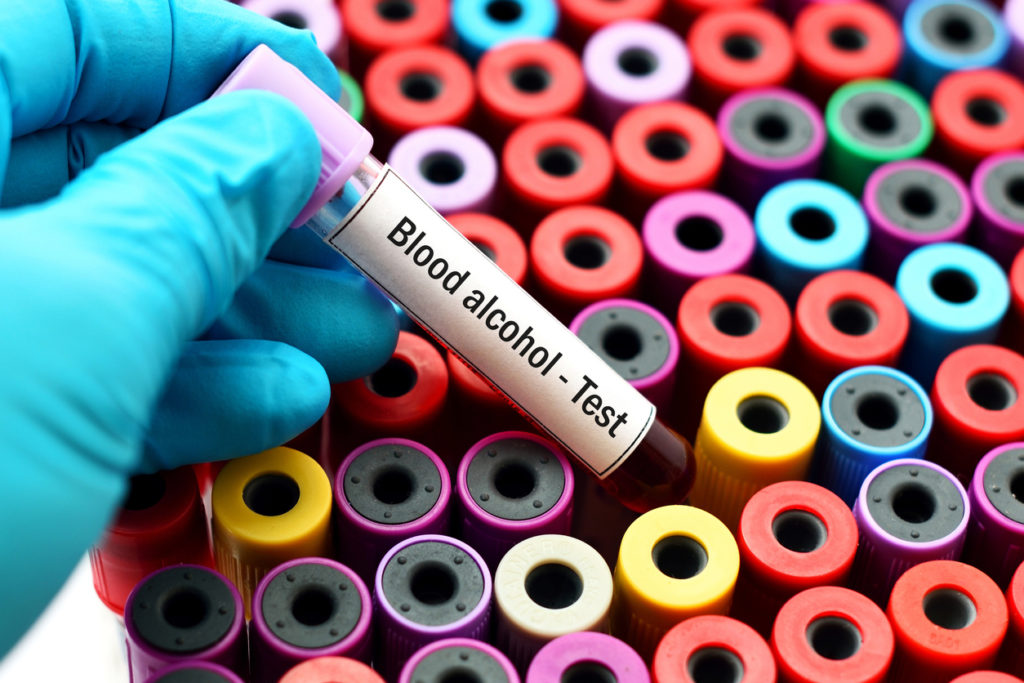Table of Contents
Alcohol consumption is a prevalent and socially accepted practice in many parts of the world. However, the effects of alcohol on our bodies can be far-reaching, and it is crucial to understand its impact on our health and well-being.
One method used to determine if someone has been drinking is through a blood test. Blood tests can reveal the presence of alcohol and its metabolites, providing valuable information about recent alcohol consumption and potential long-term abuse.
In this article, we will delve into the fascinating world of alcohol detection in blood tests, exploring the science behind it and addressing commonly asked questions about the topic.
So, let’s embark on this informative journey to uncover the facts about alcohol detection in blood tests.
Can Alcohol Be Detected In Blood Tests?
Alcohol can indeed be detected in blood tests. When alcohol is consumed, it quickly enters the bloodstream through the stomach and small intestine, where it is rapidly absorbed. As a result, alcohol and its metabolites can be detected in the blood for a certain period of time after consumption.
Blood tests are commonly used to measure the concentration of alcohol or its metabolites in the bloodstream. The most straightforward and direct method is to measure the amount of ethanol, the active ingredient in alcoholic beverages, present in the blood. Ethanol testing provides an accurate assessment of recent alcohol consumption, as it directly detects the alcohol molecules in the bloodstream.
Recommended: Can Alcohol Cause Hormonal Imbalance?
However, it’s important to note that the detectability of alcohol in a blood test can vary depending on several factors:
- Time Since Last Drink: The concentration of alcohol in the blood decreases over time as it is metabolized and eliminated from the body. Generally, alcohol can be detected in the blood for up to 12 hours or longer, depending on the individual and the amount consumed.
- Metabolism Rate: Metabolism varies from person to person, and individuals with faster metabolic rates will eliminate alcohol from their system more quickly. This means that alcohol may be detected for a shorter period in individuals with a faster metabolism.
- Alcohol Tolerance: Regular alcohol consumers may develop a higher tolerance to alcohol, which means they can consume larger amounts without displaying significant impairment or having detectable levels in their blood for longer periods.
- Type of Alcohol Consumed: Different types of alcoholic beverages, such as beer, wine, and spirits, have varying concentrations of ethanol. This can affect the rate of absorption and elimination, potentially impacting the detectability of alcohol in the blood.
- Quantity of Alcohol Consumed: The amount of alcohol consumed directly affects its concentration in the blood. Higher quantities of alcohol will result in higher levels detectable in the blood.
It is worth noting that blood tests are generally considered accurate and reliable when conducted correctly. However, false positives or false negatives can occur due to various factors such as laboratory errors, certain medical conditions, or the presence of certain medications that may interfere with the accuracy of the test.
In legal settings, blood tests are often utilized to determine the level of alcohol impairment, such as in DUI (Driving Under the Influence) cases. The legal blood alcohol concentration (BAC) limit varies by jurisdiction, and exceeding this limit can result in legal consequences.
Types of Blood Tests for Alcohol Detection
Several blood tests can be used to detect alcohol consumption, each focusing on different aspects.
- Ethanol Testing: Ethanol testing directly measures the concentration of alcohol in the blood, providing an accurate assessment of recent alcohol consumption.
- Carbohydrate Deficient Transferrin (CDT) Test: The CDT test measures the level of a specific protein called transferrin in the blood. Chronic alcohol consumption can alter the structure of transferrin, and an elevated CDT level may indicate long-term alcohol abuse.
- Liver Function Tests (LFTs): Liver function tests evaluate the overall health of the liver, which can be affected by excessive alcohol consumption. Elevated liver enzymes, such as gamma-glutamyl transferase (GGT) and alanine transaminase (ALT), can indicate liver damage caused by alcohol.

Accuracy and Reliability of Alcohol Blood Tests
Alcohol blood tests are generally considered accurate and reliable when conducted correctly. The accuracy of these tests depends on factors such as laboratory procedures, equipment, sample collection, and handling, testing methodologies, sensitivity and specificity, potential interference, timing of testing, and professional interpretation.
The medical information provided in this article is provided as an information resource only. This information does not create any patient-physician relationship and should not be used as a substitute for professional diagnosis and treatment.
Recommended: How Do You Know If You Passed MEPS Drug Test?
Certified laboratories following strict protocols and using validated methodologies help ensure accurate results. However, certain factors like medications or medical conditions can potentially interfere with the test results. It’s important to provide accurate information and consult professionals for proper interpretation.
Overall, alcohol blood tests provide valuable information, but careful consideration of these factors is necessary for accurate and reliable outcomes.
Legal Implications of Alcohol Blood Tests
Alcohol blood tests play a crucial role in legal settings, particularly in cases involving driving under the influence (DUI) or other alcohol-related offenses. These tests provide objective evidence of alcohol consumption and impairment, which can have significant legal implications for the individuals involved. Understanding the legal aspects of alcohol blood tests is essential for both individuals facing legal consequences and those seeking to comprehend the legal framework surrounding alcohol-related offenses. Let’s explore the key legal implications of alcohol blood tests:
Recommended: Can I Drink Beer After Tooth Extraction?
Blood Alcohol Concentration (BAC) Limits
Most jurisdictions have established legal limits for blood alcohol concentration (BAC) that define the threshold at which a person is considered legally impaired. These limits are typically expressed as a percentage of alcohol in the bloodstream, such as 0.08% BAC in many countries. If an individual’s BAC exceeds the legal limit, they can face various legal consequences, including fines, license suspension, mandatory alcohol education programs, probation, or even imprisonment, depending on the jurisdiction and prior offenses.
Admissibility of Blood Test Results
In legal proceedings, the admissibility of alcohol blood test results as evidence can be crucial. Courts generally consider blood test results as highly reliable and scientific evidence. However, there are legal standards and procedural requirements that must be met to ensure the validity and admissibility of these results. This includes proper chain of custody, accurate testing methodologies, and compliance with legal protocols. Any deviation or procedural error can potentially impact the admissibility and weight given to the blood test results in court.
Implied Consent Laws
Many jurisdictions have enacted implied consent laws, which state that individuals who operate a motor vehicle on public roads are deemed to have consented to alcohol testing if suspected of driving under the influence. Refusal to submit to a blood test or other forms of alcohol testing can lead to administrative penalties, such as automatic driver’s license suspension or revocation. It’s important to note that the specific consequences of refusing a blood test can vary by jurisdiction.
Recommended: Is It Better To Fail a Drug Test Or Refuse?
Evidence of Impairment
Alcohol blood tests, along with other field sobriety tests and observations made by law enforcement officers, are used as evidence to establish impairment. In DUI cases, prosecutors often rely on blood test results to demonstrate that an individual’s ability to operate a vehicle was impaired by alcohol consumption. The level of alcohol detected in the blood can be a critical factor in determining the severity of legal charges and potential penalties.
Expert Testimony
In complex legal cases, expert testimony may be presented to explain the science behind alcohol blood testing and the interpretation of the results. Forensic toxicologists or medical professionals with expertise in alcohol metabolism and blood testing can provide valuable insights regarding the accuracy and reliability of the test results. Their testimony can help the court understand the significance of the alcohol concentration detected in the blood and its impact on an individual’s impairment.
It’s important to consult with legal professionals who specialize in DUI or alcohol-related offenses to understand the specific legal implications of alcohol blood tests in your jurisdiction. These professionals can provide guidance and develop appropriate defense strategies based on the circumstances surrounding the blood test and other relevant factors.
FAQs
Can a blood test accurately determine how much alcohol I’ve consumed?
Blood tests can provide an estimate of the amount of alcohol consumed, but they are not always precise in determining the exact quantity.
How long does alcohol stay in your blood?
The duration alcohol remains detectable in the blood depends on various factors, including the individual’s metabolism, the quantity consumed, and the type of test used. On average, alcohol can be detected in the blood for up to 12 hours or longer in some cases.
Can medications or certain medical conditions affect alcohol blood test results?
Yes, certain medications and medical conditions can potentially influence alcohol blood test results. It is important to inform healthcare professionals about any medications or health conditions before undergoing alcohol testing.
Recommended: How Long Does Kidney Failure Take To Kill You?
Can alcohol be detected in other bodily fluids?
Yes, alcohol can be detected in other bodily fluids such as urine, breath, and saliva. The choice of the testing method depends on the specific requirements of the situation.
How can I reduce the chances of alcohol detection in a blood test?
It is not advisable to try and manipulate blood test results. Instead, focus on making responsible choices regarding alcohol consumption and refrain from driving or operating machinery if you have been drinking.
Conclusion
Alcohol can be detected in blood tests through various methods, allowing for the determination of recent alcohol consumption and potential long-term abuse. Understanding the factors that influence alcohol detection and the types of blood tests used can help individuals comprehend the implications of their alcohol consumption. It is essential to remember that responsible drinking practices and adherence to legal limits are crucial for maintaining personal health and safety.





More Stories
Punching Through History: A Spotlight on Boxing Culture in England’s Reading
The Link Between Vitamin E Intake and Parkinson’s Disease
Tips and Techniques for Moving Past Binge Drinking